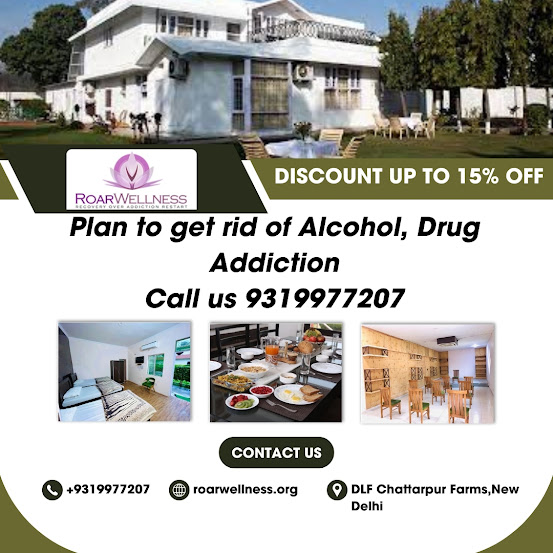How to Get Rid of Alcohol Addiction
1. Understanding the Root Causes of Alcohol Addiction
Understanding the root causes of alcohol addiction requires a nuanced exploration of psychological, social, and biological factors that contribute to this complex issue. On a psychological level, individuals may turn to alcohol as a coping mechanism for stress, trauma, or mental health challenges. Social influences, such as peer pressure or a culture that normalizes excessive drinking, also play a significant role. Moreover, genetic predispositions and biochemical imbalances in the brain can increase vulnerability to addiction.
Examining childhood experiences, family dynamics, and societal pressures unveils the intricate web of influences shaping alcohol dependence. Recognizing these underlying factors is essential for tailoring effective interventions and support systems. By delving into the multifaceted origins of alcohol addiction, we pave the way for comprehensive strategies that address the root causes and foster sustainable recovery.
2. Effective Treatment Strategies for Alcohol Addiction
Effective treatment strategies for alcohol addiction involve a comprehensive approach addressing both the physical and psychological aspects of dependency. Medical detoxification is often the initial step to manage withdrawal symptoms safely. Behavioral therapies, such as Cognitive-Behavioral Therapy (CBT) and Motivational Enhancement Therapy (MET), play a crucial role in modifying thought patterns and motivating individuals to change their drinking behaviors.
Support groups, such as Alcoholics Anonymous (AA), provide a sense of community and encouragement for long-term recovery. Medications like disulfiram, naltrexone, and acamprosate may be prescribed to help reduce cravings and maintain sobriety. In addition, family involvement and counseling contribute to creating a supportive environment for individuals in recovery.
Tailoring treatment plans to individual needs is essential, considering factors like co-occurring mental health disorders. Ongoing monitoring and relapse prevention strategies are crucial for sustained recovery. Overall, a personalized, multi-faceted approach, encompassing medical, psychological, and social elements, is key to effectively address alcohol addiction and promote lasting positive change.
3. Building a Supportive Network for Recovery
Building a Supportive Network for Recovery is a transformative journey that involves cultivating meaningful connections to foster healing and growth. This process entails surrounding oneself with individuals who offer understanding, encouragement, and empathy, creating a resilient foundation for recovery. Whether overcoming addiction, mental health challenges, or personal setbacks, a robust support network provides vital emotional sustenance and practical assistance.
This collaborative effort involves open communication, active listening, and shared experiences, fostering a sense of belonging and empowerment. As individuals unite to navigate the complexities of recovery together, they amplify each other's strengths, turning challenges into opportunities for positive transformation. The essence of building a supportive network lies in its ability to create a safe space where vulnerability is met with compassion, and collective strength becomes the catalyst for lasting recovery and well-being.
4. Lifestyle Changes for Maintaining SobrietyEmbracing a sober lifestyle involves profound changes that extend beyond mere abstention from substances. It encompasses a holistic transformation, requiring individuals to cultivate new habits, routines, and perspectives. Prioritizing self-care becomes paramount, with a focus on physical fitness, nutritious eating, and ample sleep fostering overall well-being. Social circles may shift, with an emphasis on connecting with supportive, understanding individuals who champion the pursuit of a substance-free life.
Mindfulness practices, such as meditation and therapy, play a pivotal role in navigating challenges and preventing relapse. Developing coping mechanisms, resilience, and a sense of purpose become cornerstones of sustained sobriety. Engaging in meaningful activities and pursuing hobbies not only fill the void left by substances but also contribute to personal growth and fulfillment.
In essence, maintaining sobriety is a multifaceted journey that involves reshaping one's lifestyle. It is an ongoing commitment to self-improvement, fostering resilience, and crafting a life rich in purpose and joy, ultimately empowering individuals to thrive without the crutch of substances.
5. Prevention and Education
Prevention and education form the cornerstone of proactive efforts to address various challenges and promote well-being. In the context of health, preventive measures aim to thwart the onset of diseases through awareness, lifestyle modifications, and early intervention. Educational initiatives empower individuals with knowledge, fostering informed decision-making and healthier choices.
In the realm of societal issues, prevention involves strategies to deter undesirable outcomes, be it crime, substance abuse, or environmental degradation. Education becomes a powerful tool for instilling values, critical thinking, and promoting responsible behavior. Together, prevention and education create a synergistic approach that equips communities to anticipate challenges, mitigate risks, and cultivate a culture of resilience.
Whether in healthcare, social issues, or environmental concerns, the tandem of prevention and education lays the groundwork for sustainable and positive outcomes. By fostering a proactive mindset and empowering individuals with knowledge, we pave the way for a healthier, safer, and more enlightened future.
In this quest for sobriety, individuals confront personal challenges, but also discover newfound strength and resilience. This guide explores key strategies, therapies, and lifestyle changes essential for overcoming alcohol addiction, offering a beacon of hope for those seeking a healthier and liberated life.





Comments
Post a Comment